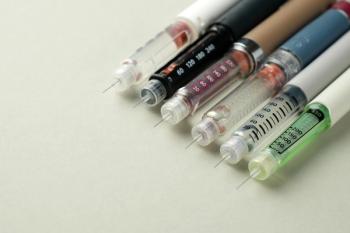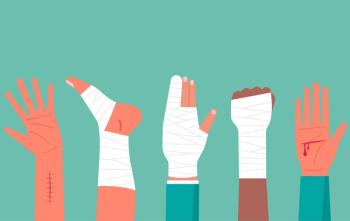
- Psychiatric Times Vol 15 No 2
- Volume 15
- Issue 2
Commentary: The Moral High (Low?) Ground of Assisted Suicide
There is and has been much debate about the issue of assisted suicide as physicians, lawyers and lay people argue the pros and cons of assisting in someone's death. The physician who agrees to participate in this endeavor points out that his or her concern is to alleviate suffering. Notwithstanding that, painkillers are notoriously prescribed in inadequate, understrength doses; people with serious illness who are depressed are considered unlikely candidates for treatment of their depression because, sayeth the physician: "It is only natural, understandable, to be depressed with that kind of terrible illness."
There is and has been much debate about the issue of assisted suicide as physicians, lawyers and lay people argue the pros and cons of assisting in someone's death.
The physician who agrees to participate in this endeavor points out that his or her concern is to alleviate suffering. Notwithstanding that, painkillers are notoriously prescribed in inadequate, understrength doses; people with serious illness who are depressed are considered unlikely candidates for treatment of their depression because, sayeth the physician: "It is only natural, understandable, to be depressed with that kind of terrible illness."
A patient with a stab wound lies in the ER exsanguinating. In light of the wound, this too is only natural; it is also understandable that he is going into shock and will die. But watch here the gyrations of the medical staff to stop the bleeding and treat the shock-despite it being only a natural consequence of a stab wound.
When depression is present at the same time or shortly after a physical illness, depression must be considered as a severe complication of the physical illness. It is not simply "the blues." And it is never "befitting."
Depression may occur as a cognitive stress reaction altering brain chemistry consequent to the patient's acknowledging a cancer; or depression may exist independently of a patient's malignancy; or it may be that the toxic effects of the cancer, or the chemotherapy to treat it, have altered brain chemicals and caused depression. In any event, a clinical depression is always a condition to treat appropriately and adequately.
There is no lack of data that cancer patients who express wishes to die no longer express these wishes when pain medication is adequate or when effective antidepressant therapy has been achieved.
Some physicians and nonphysicians point out the horrific bugaboo: "But do you want to be kept alive like a vegetable with those tubes and machines supporting a brain stem life?" As if hospitals were filled with beds and wards of not quite human carrots on life-support systems. It is to be noted that traditionally, plugs "fall" from the wall sockets (sometimes even leap out of these sockets) of a patient on long-term life-support systems who is deemed hopeless by medical staff.
What about physicians who find it difficult to see terminally ill patients day after day? The patient's helplessness and dependency may provoke fears of engulfment in the doctor, and the distressing daily reminder of the patient's downhill course may promote physicians' tendencies to distance themselves from the patient. This may lead to unconscious withdrawal from, or rejection of, the patient. What recommendations would the physician then make to this distressed ill patient? And exactly for whose benefit would the recommendation be made?
Imperceptive thoughts dictate many of our decisions. It is easy to be "noble" with another's life. It is even easier to be "noble" with a patient who is a crock (medical jargon for the "always complaining" patient) and advise the patient of the option of "ending" the travail (for both patient and physician).
And with the advent of mangled care organizations, the pocketbook value of sustaining life must be factored into the equation. Cost=MC2, where MC is managed care, and the exponent is the pressure on physicians not to treat. And the pressure is real. A doctor who treats more than his profile projects (orders in the way of tests, treatment and specialist referrals more than the "average" ordered by the other physicians on the managed care roster) is either dismissed from the agency roster, or must pay out of his own pocket by foregoing the bonus doctors are paid for coming in under the scheduled cost for the year. The gatekeeper physicians are under the gun not to refer to specialists-unless there is no other choice. What is best and most prudent for the patient is further evaluated for cost-effectiveness...and avarice.
Doctors (some, certainly not all) who once made extra bucks by ordering extra tests, now can make those extra bucks by not ordering needed tests or eliminating tests that may offer important information. The "may" tests, which might be critical to one's care and life, can now be rationalized away.
The Right to Choose
Yes. Sure. For the patient who is depressed, in pain and concerned about his or her family, there is the following to contend with: "Why prolong things...only an expense on the family. And a burden." With depression exist feelings of guilt.
Freedom of choice. Nonsense. Freedom of choice comes only when there is no coercion, overt or covert. The physician allying with a fragile and susceptible superego and egging the patient on to self-destruction, or allying with a battered ego and encouraging the patient to "end it" so as to boost the patient's worth and esteem with his or her family and doctor-this is not self-determination. And it is not freedom and certainly not choice.
A recent newspaper letter by a doctor described how he proceeded when a patient who was terminally ill stated he wished he were dead. The physician, upon hearing him repeat this a number of times, felt he had to offer relief. So he suggested that the man discontinue eating and drinking. The man objected, telling the doctor that eating food was his only pleasure. The physician, taken aback, offered nothing further. What was the patient really saying? He was asking for help in coping with his illness. He was asking desperately for succor. Not for a lethal swallow. There was still some enjoyment he derived from being alive. The physician could not comprehend this "inconsistency." After all, he had offered the man a way to death. Why was this patient being difficult?
Did the patient simply need a doctor who could walk the last mile with him without flinching? Did the patient require more and adequate pain medication? Did the patient need an antidepressant? Did the patient need to talk to a psychiatrist or psychologist to put the existentialism looming before him into perspective?
The term suicide is defined as self-murder. Assisting self-murder requires consideration of the above. The motive of both the self-murderer and the requested assistant must be seen in daylight. This necessitates understanding the unconscious conflicts that every human being has, including the human being who is the physician, who would be the self-murderer's accessory.
A recent study in a hospital specializing in the treatment of cancer examined a cohort of terminally ill patients. They selected a group from these patients who expressed suicidal ideation. They then treated those in this group who also showed signs of clinical depression. Not surprisingly, when antidepressant therapy took effect, the majority of those patients no longer expressed a wish to die. Suicidal ideation occurs in the shadow of depression, particularly when the patient has the ominous view of hopelessness and helplessness.
Hopelessness and helplessness must be addressed (as well as depression treated) to ensure that when the patient speaks of suicide it is understood as a request for relief and not for termination. Clearly, as this study illustrates, patients who have a remission of their depression no longer express the wish to hasten their own death-even though they are aware of their terminal illness.
Depression must always be treated because there is no such thing as "free choice" or "volitional choice" if the patient is choosing from under a cloud of depression-induced despair.
In the general population, a clinical depression is characterized by sleep disturbance, generally early morning awakening. There might also be difficulty falling asleep, or oversleeping in other patients. Appetite becomes poor and weight loss occurs. There is a decrease of energy and a complaint of fatigue. Concentration deteriorates. There is no enjoyment of activities that were previously pleasurable. Worries about possible physical illnesses may become the most prominent object of the patient's dwindling attention.
What might depression look like in a seriously ill, hospitalized patient? Since in a hospital setting it may be difficult to elicit which sleep and appetite disturbances and even alterations of concentration are due to the physical illness and which are due to depression, the following symptoms can offer diagnostic rationale of a clinical depression: a depressed appearance either in facial mien or in body demeanor (great effort to move, moves slowly, limbs seem to hang limply); if the patient has stopped talking, or talks less than usual and in monosyllables, and is notably apathetic and appears to prefer isolation; the patient will not smile, resists being cheered up or encouraged, shows a bleak or blank expression and makes no positive reaction to any good news; there is an attitude of pessimism with notable brooding; self-pity is frequently evident.
Once considered by the observer, these features call out for the appropriate diagnosis of depression-and clamor for its subsequent treatment.
Recently I entered a hospital for same-day surgery for carpal tunnel syndrome. On the hospital questionnaire was "Do you have a DNR at any facility?" I was taken aback but not totally surprised. "Do Not Resuscitate" has become very popular. This is a covert form of assisted suicide. I call it "Do Not Reason." If a registered nurse gives a wrong medication dose, perhaps of potassium, and heart stoppage occurs, then what? No one has to look for cause and effect or to reason upon what has happened and why. After all, there is a DNR-and that's that. Certainly saves time and effort on part of hospital staff. It's very cost-effective.
In Holland, where there has been a degree of legalization for physician-assisted suicide with mandatory guidelines, some physicians ignore these guidelines. And where a second opinion is required, doctors refer to other doctors who have the same leanings (positive) toward assisted suicide. So much for checks and balances.
In the managed care future, would most assisted suicides occur the month after premiums are paid? Managed care would surely look with favor upon this fiscal timing. Or do I detect a touch of pessimism in myself after rereading this tract?
Articles in this issue
about 28 years ago
The (Unintended) Consequences of Mental Health Parity Policyabout 28 years ago
The Psychiatrist's Role in Choosing a Nursing Homeabout 28 years ago
ERISA May Shield HMO Liability: Texas Law Under Fireabout 28 years ago
U.S. Psychiatric Congress Honors Excellenceabout 28 years ago
Alzheimer's Unitabout 28 years ago
Congressman Introduces ERISA Reformabout 28 years ago
Is It Depression or Is It Dementia?about 28 years ago
'Patient Dumping'-Mentally Ill Get ShortchangedNewsletter
Receive trusted psychiatric news, expert analysis, and clinical insights — subscribe today to support your practice and your patients.






